 “Tenkyuu” is certainly an interesting word. When Satowa decides on it for the piece Takainami-sensei has adapted for the karuta club, she has in mind “Rainbow” (天弓) – as in one color for all seven members of the club. This is a rather youthful and innocent notion – one which Takinami-san can’t help but laugh at despite himself. He suggests a change of one character – to “天泣”, which (as is so often the frustrating case with Kanji) is pronounced the same, but roughly means “rain falling from a cloudless sky” but literally translates as tears from Heaven. This is one of those words in Japanese that simply has no English equivalent, but packs a good deal of meaning.
“Tenkyuu” is certainly an interesting word. When Satowa decides on it for the piece Takainami-sensei has adapted for the karuta club, she has in mind “Rainbow” (天弓) – as in one color for all seven members of the club. This is a rather youthful and innocent notion – one which Takinami-san can’t help but laugh at despite himself. He suggests a change of one character – to “天泣”, which (as is so often the frustrating case with Kanji) is pronounced the same, but roughly means “rain falling from a cloudless sky” but literally translates as tears from Heaven. This is one of those words in Japanese that simply has no English equivalent, but packs a good deal of meaning.
 I don’t want to put too much into it, but one could look at this small change as the difference between a child’s view of the world and an adult’s. Satowa’s idea is sweet, but Suzuka-chan’s is bittersweet – and bittersweet is a much more profound and complex flavor. As he explains it, the title represents tears of joy – the times people cry but not from sadness, something he’s already seen the Tokise karuta club do on more than one occasion. I think it’s really quite a lovely notion, and – as Satowa says – shows that Suzu-chan perfectly understands what the piece represents to her.
I don’t want to put too much into it, but one could look at this small change as the difference between a child’s view of the world and an adult’s. Satowa’s idea is sweet, but Suzuka-chan’s is bittersweet – and bittersweet is a much more profound and complex flavor. As he explains it, the title represents tears of joy – the times people cry but not from sadness, something he’s already seen the Tokise karuta club do on more than one occasion. I think it’s really quite a lovely notion, and – as Satowa says – shows that Suzu-chan perfectly understands what the piece represents to her.
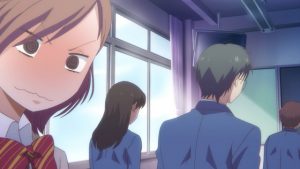 However, this is fiction and drama at that, and into each sunny sky rain clouds must eventually arrive. In this case they would be Doujima Akira, who arrives unannounced and tells the Koucho-sensei that she’d like to volunteer to tutor the club twice a week. This is the handiwork of her grandmother of course, but it’s clear that Doujima-san herself brings a great deal of hostility into her dealings with Satowa. “Nip it in the bud”, indeed – yet Suzuka-chan agrees to let her teach the club despite the resistance from most of its members, interestingly.
However, this is fiction and drama at that, and into each sunny sky rain clouds must eventually arrive. In this case they would be Doujima Akira, who arrives unannounced and tells the Koucho-sensei that she’d like to volunteer to tutor the club twice a week. This is the handiwork of her grandmother of course, but it’s clear that Doujima-san herself brings a great deal of hostility into her dealings with Satowa. “Nip it in the bud”, indeed – yet Suzuka-chan agrees to let her teach the club despite the resistance from most of its members, interestingly.
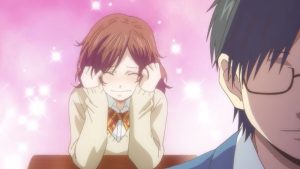 The thing is, what both Doujima and Takinami-sensei say is indisputable. The club is indeed weak fundamentally compared to their competition, and the burden of being their teacher as well as featured performer is a lot for Satowa-chan to carry. And Doujima-san is also right that the skills required to teach are different than those required to play – though she does have first place in the competition in which Satowa was disqualified for her infamous “Tenkyuu” as street cred. The problem, though, is that Satowa sees the club as having given her much more than she’s given back, and teaching them really does feel to her like the least she could do to show her gratitude and affection.
The thing is, what both Doujima and Takinami-sensei say is indisputable. The club is indeed weak fundamentally compared to their competition, and the burden of being their teacher as well as featured performer is a lot for Satowa-chan to carry. And Doujima-san is also right that the skills required to teach are different than those required to play – though she does have first place in the competition in which Satowa was disqualified for her infamous “Tenkyuu” as street cred. The problem, though, is that Satowa sees the club as having given her much more than she’s given back, and teaching them really does feel to her like the least she could do to show her gratitude and affection.
 It’s hardly a surprise that it’s Hiro-san who most viscerally resists Doujima’s attempts to “teach” the club. Her radar about this sort of thing is pretty honed, since she played the role of saboteur herself. But it’s Chika who responds most positively, because he’s quite laser-focused on improving his own performance at any cost. As a blunt and tactless person himself, he focuses on the truth of Doujima’s harsh words rather than the intent behind them. And given that among all the moments of the club he’s the one whose raw talent most exceeds his formal training, he has the most to gain from Doujima’s tutelage.
It’s hardly a surprise that it’s Hiro-san who most viscerally resists Doujima’s attempts to “teach” the club. Her radar about this sort of thing is pretty honed, since she played the role of saboteur herself. But it’s Chika who responds most positively, because he’s quite laser-focused on improving his own performance at any cost. As a blunt and tactless person himself, he focuses on the truth of Doujima’s harsh words rather than the intent behind them. And given that among all the moments of the club he’s the one whose raw talent most exceeds his formal training, he has the most to gain from Doujima’s tutelage.
 Muddled sound or do, this club has bonded in a way that Doujima and her grandmother can’t possibly have anticipated. They take the nut of Doujima’s lessons on the basics – mastering notes and simple scales – and draft their own routine from it, focusing on the “Tenkyuu” score. And when she tries to forbid them from using it, Takinami-sensei backs them up – which more or less leaves her no choice but to acquiesce. This tug-of-war is far from over, to be sure, and wills on both sides are strong. But the situation that she’s walked into is clearly different from the one Doujima expected.
Muddled sound or do, this club has bonded in a way that Doujima and her grandmother can’t possibly have anticipated. They take the nut of Doujima’s lessons on the basics – mastering notes and simple scales – and draft their own routine from it, focusing on the “Tenkyuu” score. And when she tries to forbid them from using it, Takinami-sensei backs them up – which more or less leaves her no choice but to acquiesce. This tug-of-war is far from over, to be sure, and wills on both sides are strong. But the situation that she’s walked into is clearly different from the one Doujima expected.


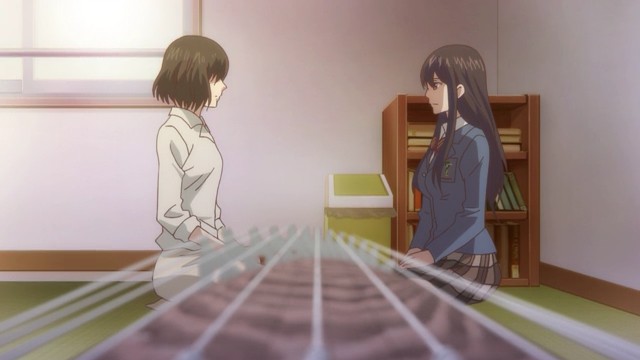
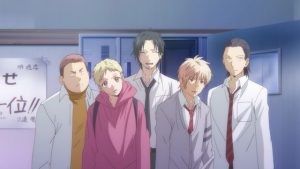
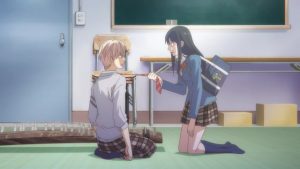
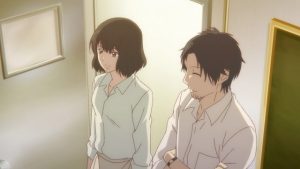

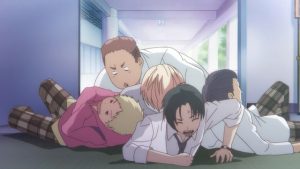

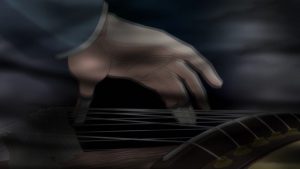
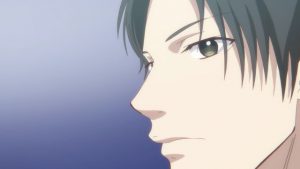

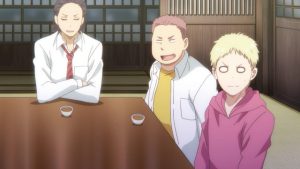


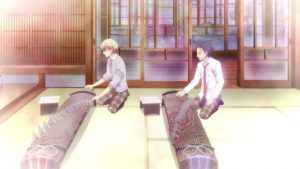
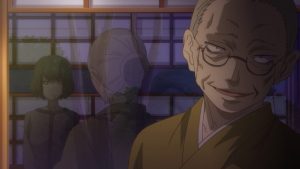
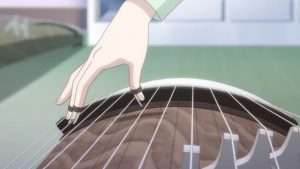


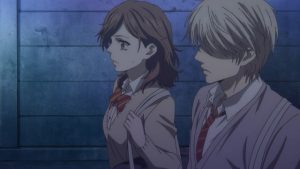



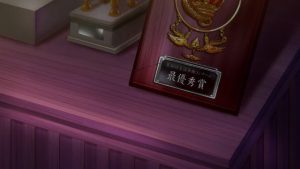






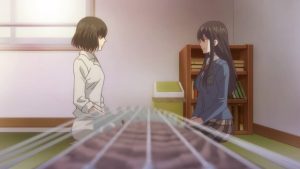
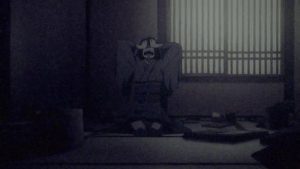
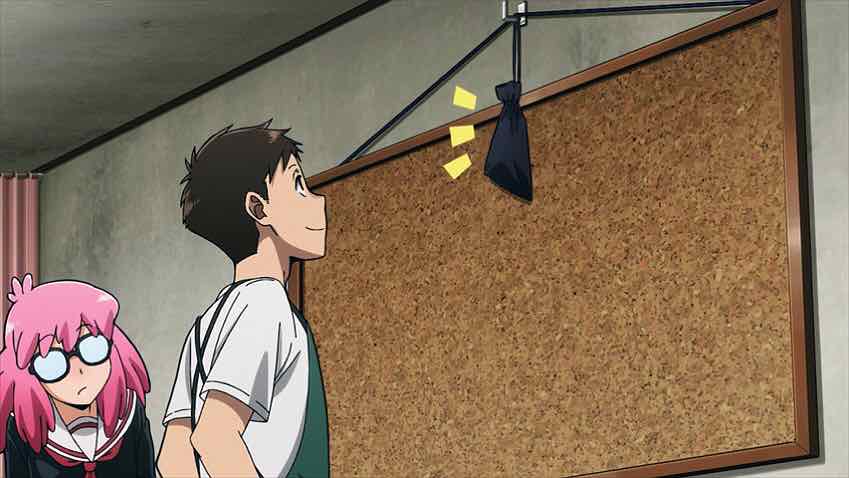

1 comment